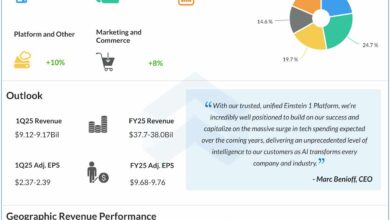AI-Enhanced Searches Could Pose Threat to Creators, Publishers

Google’s dabbling with enhancing its search results with artificial intelligence could have dire consequences for anyone with a business that depends on Alphabet’s best-known subsidiary for web traffic.
Anyone who’s done a Google search knows it’s already stuffing AI summaries into its search results, but it will be upping its ante in AI when a program called Search Generative Experience (SGE) exits its current experimental phase.
According to Google, SGE will enrich searches by using AI to provide summaries, suggest further exploration paths, and allow for easy refinement of search queries. For content creators, though, the feature could be a nightmare.
“SGE will impact many of the bloggers and publishers we’re all familiar with,” said Aaron Traub, owner of GeauxSEO, an SEO and website design company in New Orleans.
“Generally, any questions or topics that can be quickly answered with AI will eventually command the digital real estate space for these queries, eliminating many publishers currently ranking for these types of queries,” he told TechNewsWorld.
Chris Ferris, senior vice president of digital strategy at Pierpont Communications, a public relations agency in Houston, maintains that SGE will further erode the amount of website traffic businesses can count on from organic search.
“Organic search traffic has been falling for years because Google PPC [pay-per-click] ads, “people also ask” suggestions, maps, etcetera, have pushed down what used to be top Google search results. SGE will just accelerate that even faster,” he told TechNewsWorld.
Impact of SGE on Organic Traffic
SGE essentially is the newest way for Google to keep users interacting with the search engine results page (SERP) and disincentivizing them from visiting the source content, asserted Joe Karasin, CMO and founder of Karasin PPC, a marketing agency that specializes in Google ads, in Lapeer, Mich.
“For example,” he told TechNewsWorld, “if I write great content about the use of paid search ads, and the SGE chat answers questions about this directly for someone searching for it, why would they click to any search results?”
“Currently, SGE isn’t being widely adopted, but it will eventually be forced on users, and this will lead to significant traffic decreases for websites and publishers and diminish the ad revenue sites gain from their traffic,” he continued.
“SGE is the next phase in Google’s attempt to create a zero-click search experience,” he said. “They initially started with the SERP features, attempting to keep users on the results page rather than have them navigate away. Now, the SGE will be able to answer user queries in a seamless, conversational manner, even if the chatbot decides to hallucinate.”
Since Google introduced SGE more than a year ago, people have debated its impact on creators and publishers, added Greg Sterling, co-founder of Near Media, a news, commentary, and analysis website. “While the product is evolving, the consensus is this: less visibility and less traffic to publishers,” he told TechNewsWorld.
“It’s unfortunate for these small business owners, but SGE will push new developments in content creation and the value needed to stand out from AI-generated answers,” maintained GeauxSEO’s Taub. “In my opinion, topics that can only be fully answered by experts or large brands in their respective fields will win out.”
Drastic SEO Pivots May Be Premature
Kelly Ayers, SEO manager at Jordan Digital Marketing, a provider of digital marketing services in San Francisco, contends that SGE is still a big unknown because two unknown algorithms are driving it — the search algorithm and the algorithm driving the SGE results within the SERPs.
“What we do know so far is that SGE is meant to keep users on the SERPs, not clicking through to websites, and it’s working,” she told TechNewsWorld. “We work with brands showing up in SGE content, but users aren’t clicking through the source links to the original content.”
“What we’re also seeing is that brands showing up in SGE content are also ranking very well in traditional SERP listings, where they are driving clicks,” she added. “This tells me that SGE is drawing from a lot of the same principles as successful SEO in general, so I’m not sure marketers need to make any drastic pivots yet to improve their chances of placing in SGE content.”
Creators and publishers may also see some benefits from SGE, argued Mark N. Vena, president and principal analyst of SmartTech Research in San Jose, Calif.
“The Generative Experience tool can potentially transform how users interact with search results by summarizing and synthesizing information across multiple sources,” he told TechNewsWorld. “For creators and publishers, this means their content could be integrated into broader narratives, potentially reaching audiences who might not have discovered their work through traditional search queries.”
“By providing more interactive and dynamically generated content, Google’s tool may increase user engagement,” he continued. “For creators, this means audiences might spend more time interacting with content presented in a new, more engaging format. Publishers might see this as an opportunity to capture and retain the attention of users who are becoming increasingly accustomed to interactive digital experiences.”
Challenges to Content Accuracy and Visibility
Vena added that the generative capabilities of Google’s tool may inspire creators to experiment with new types of content optimized for generative search experiences. “This could lead to innovative formats and storytelling techniques that are particularly effective in a synthesized information environment,” he said.
He acknowledged, however, that with the increased use of AI to generate content summaries or integrated responses, there’s a valid concern about the integrity and authenticity of the information presented. “Creators and publishers may worry about the accuracy of how their content is represented or altered in generative summaries, which could impact their brand and the trust they’ve established with their audience,” he noted.
Ayers pointed to another problem for content creators and publishers with SGE. “One downside of SGE and AI-generated query results is the proliferation of spam content or misinformation, making it difficult for authoritative experts and influential creators to keep visibility high,” she said. “Publishers might have to seek alternative content distribution avenues if SGE impacts their engagement and reach.”
For Google’s part, it believes it can incorporate AI into its search results without disrupting the traffic so many of its users depend on for their livelihoods. Speaking on Alphabet’s earnings call in January, CEO Sundar Pichai observed: “We are improving satisfaction, including answers for more conversational and intricate queries…[W]e are surfacing more links with SGE and linking to a wider range of sources on the results page, and we’ll continue to prioritize approaches that add value for our users and send valuable traffic to publishers.”




